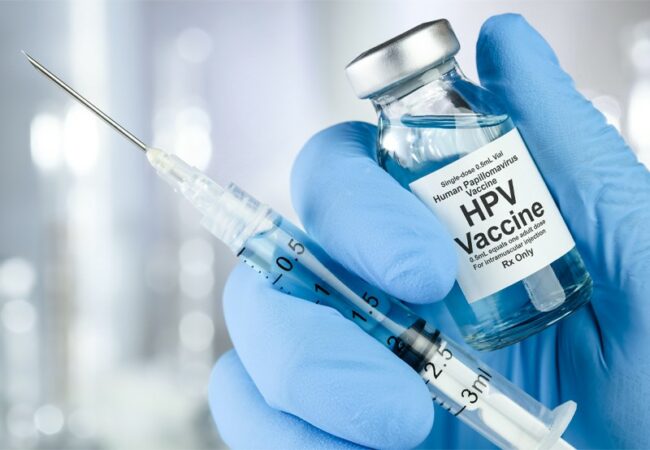The Nigerian government has introduced the Human Papillomavirus (HPV) vaccine into the routine immunisation system to target over seven million girls, which is the largest number in a single round of HPV vaccination in the African region.
Girls aged nine to 14 years will receive a single dose of the vaccine, which is highly efficacious in preventing infection with HPV types 16 and 18 that are known to cause at least 70 per cent of cervical cancers.
In Nigeria, cervical cancer is the third most common cancer and the second most frequent cause of cancer deaths among women aged between 15 and 44 years. In 2020, Nigeria recorded 12,000 new cases and 8,000 deaths from cervical cancer.
Speaking at the launch in Abuja, the Coordinating Minister of Health and Social Welfare, Prof. Muhammad Ali Pate, said the loss of about 8,000 Nigerian women a year from a disease that is preventable is unacceptable.
“Cervical cancer is mostly caused by HPV, and parents can avoid physical and financial pain by protecting their children with a single dose of the vaccine.
Saving lives, producing quality health outcomes, and protecting the wellbeing of Nigerians are central to the renewed health agenda of President Bola Ahmed Tinubu.
“The onset of the vaccination campaign is an opportunity to safeguard our girls from the scourge of cervical cancers many years into the future. As a parent myself, I have four daughters, and all of them have had the same HPV vaccine to protect them against cervical cancer.
“I would like to implore fellow parents to dutifully ensure that this generation of our girls disrupts the preventable loss of lives to cervical cancer in addition to other untold hardship, loss, and pain,” Pate said.
Meanwhile, the WHO Representative in Nigeria, Dr. Walter Mulombo, said this is a pivotal moment in Nigeria’s efforts to lower the burden of cervical cancer, one of the few cancers that can potentially be eliminated through vaccination.
“We’re committed to supporting the government to increase access to the HPV vaccine to protect the health and well-being of the next generation of women.”
WHO recommends that HPV vaccination be included in the national immunisation programmes of countries where cervical cancer is a public health priority and where its cost-effective and sustainable implementation is feasible.
“As such, Nigeria has prioritised the addition of the vaccine to the country’s routine immunisation schedule.
“Global supply shortages have slowed Gavi-supported vaccine introductions.
These supply issues are now easing thanks to years of market-shaping efforts to develop a more robust HPV vaccine market and the single-dose recommendation.
“Recognising this critical opportunity to reach more girls with higher levels of global HPV vaccine supply and renewed momentum towards accelerating efforts to prevent cervical cancer, the Gavi board approved the revitalization of its HPV vaccine programme with an investment of over $600 million by the end of 2025.
“With the additional funding, Gavi and its partners have set an ambitious goal to reach over 86 million girls by 2025, aiming to avert over 1.4 million future deaths from cervical cancer.”
YOU SHOULD NOT MISS THESE HEADLINES FROM NIGERIAN TRIBUNE
Nigeria’s current situation lamentable — Anyaoku
Chief Emeka Anyaoku, a former Secretary-General of the Commonwealth has described the current situation in…
Bukola Saraki foundation covers Mr Ibu’s medical bills
The Abubakar Bukola Saraki Foundation has fully covered the medical expenses of the…
Hold my pastor responsible if anything happens to me — Chef Dammy
Ekiti-based Nigerian chef, Damilola Adeparusi, popularly known as Chef Dammy, has stated that her…
Why Tiwa Savage may not sing for more than a year
In a move reminiscent of Afrobeat sensation Tekno, renowned Nigerian singer Tiwa Savage is facing the prospect of…
How Gomba won 2023 Nigeria Prize for Literature
THE 2023 edition of The Nigeria Prize for Literature climaxed last Friday at Eko Hotel, Victoria Island, Lagos, with…
Kidney failure, also known as end-stage renal disease (ESRD), can have various causes, but the two main types are...






